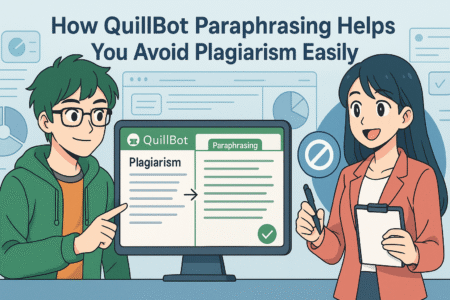Table of Contents
When you hire content writer, you’re not just paying for words—you’re investing in visibility, credibility, and growth. But how exactly does the right writer help you boost website traffic and turn casual visitors into loyal customers?
This guide breaks it all down so you can confidently find, hire, and work with a content writer who delivers measurable results fast.
Why Hiring A Content Writer Is a Game-Changer for Growth
Hiring a content writer isn’t just about outsourcing blog posts — it’s about amplifying your brand’s reach and credibility.
When done right, great content brings in the right audience, builds authority, and converts attention into action.
How Expert Content Writers Drive Organic Traffic
When you hire a content writer with real SEO experience, you’re bringing in someone who understands how Google thinks. Expert writers use keyword research tools like Ahrefs or SEMrush to find what your audience is actually searching for — not what you think they’re searching for.
For instance, instead of writing “marketing tips,” a writer might spot that “small business content strategy” has higher intent and lower competition. Then, they’ll build an article that fits that specific search pattern.
Writers also focus on search intent — the “why” behind a query. A good SEO writer knows how to create:
- Informational content (blog posts, guides) to build trust.
- Transactional content (landing pages, sales pages) to convert leads.
Over time, this creates a steady flow of qualified traffic that compounds like interest — it grows even when you’re asleep.
The Role of SEO and Keyword Strategy in Content Success
An expert content writer doesn’t just sprinkle keywords randomly — they map them to your sales funnel.
Here’s how that works:
- Top of Funnel (TOFU): Educational posts like “How to build a content strategy” bring in awareness.
- Middle of Funnel (MOFU): Comparison guides such as “Best SEO tools for small businesses” nurture leads.
- Bottom of Funnel (BOFU): Landing pages or case studies drive final conversions.
Writers also optimize on-page SEO — title tags, meta descriptions, and structured headings — while keeping readability high. Tools like Rank Math or SurferSEO can help writers ensure each post is both human-friendly and search-engine-friendly.
I always suggest reviewing drafts inside your CMS (like WordPress or HubSpot) with an SEO plugin turned on — it’s a quick way to ensure structure, keyword density, and readability are all balanced.
Building Brand Authority Through Consistent, High-Quality Writing
Consistency is what turns a blog into a brand. Publishing high-quality, consistent content signals to Google — and readers — that your business is reliable.
A content writer helps you:
- Maintain a steady publishing cadence (for example, 2 optimized posts per week).
- Keep your tone, voice, and message uniform across platforms.
- Build topical authority, meaning your brand becomes a trusted expert in its niche.
I’ve seen businesses grow from 500 to 5,000 monthly visitors within six months simply by maintaining consistent, valuable content that aligns with search demand. The key? Every article answers one user question completely.
Turning Readers Into Buyers With Strategic Storytelling
Storytelling isn’t fluff — it’s strategy disguised as emotion. A skilled writer crafts stories that guide readers from curiosity to commitment.
A good structure often looks like this:
- Start with a relatable problem: “Ever feel like your marketing isn’t converting no matter how much you post?”
- Empathize with the reader: “You’re not alone — most brands struggle to balance traffic with conversion.”
- Present your solution naturally: “That’s why hiring a content writer who understands conversion copywriting matters.”
This emotional flow builds connection, trust, and ultimately conversions. Humans buy from humans, not from faceless websites.
Signs It’s Time to Hire a Content Writer
Recognizing the right time to hire a content writer can save you months of frustration and missed opportunities. If your growth feels stuck or your message is inconsistent, these signs are your green light.
When Your Content Creation Is Inconsistent or Overwhelming
If you’re juggling content creation alongside running your business, quality will eventually suffer. A professional content writer gives you back your time while keeping your blog, newsletters, and landing pages consistent.
You’ll know it’s time when:
- You haven’t published anything in weeks (or months).
- Each piece feels rushed or incomplete.
- You’re spending hours editing or brainstorming with no results.
In my experience, outsourcing even one article per week can dramatically lift your online visibility while freeing you to focus on strategy and product growth.
If Website Traffic Has Plateaued or Declined
Stagnant traffic is usually a sign your content no longer aligns with search intent or keyword trends. An expert writer refreshes old content, updates meta tags, and restructures posts to win back lost rankings.
For instance, if your blog traffic has flatlined, a writer might:
- Audit existing posts using Google Search Console to find underperforming keywords.
- Re-optimize content with better headers and internal links.
- Add up-to-date stats and examples to increase relevance.
I once advised a client to update a 2019 article — traffic doubled in 30 days simply from modernizing the structure and targeting the right long-tail keyword.
When You’re Struggling to Convert Visitors Into Leads
Traffic without conversions is like a store full of browsers who never buy. A conversion-focused content writer understands psychology — they write to persuade, not just inform.
Writers can help by:
- Optimizing CTAs (calls to action) to fit the context of each article.
- Writing benefit-driven headlines (“Grow Your Email List in 10 Days”) instead of generic ones.
- Incorporating micro-conversions, such as newsletter signups or free trials, throughout content.
Even small tweaks — like placing a CTA after a key insight — can lift conversion rates by 15–20%.
If Your Messaging Lacks Clarity or Brand Voice
If your website sounds different on every page, it’s time to bring in a writer. A professional can capture your tone — whether friendly, bold, or formal — and make it feel cohesive across all content.
The process often starts with a brand voice guide, a short document that defines:
- Tone of voice (e.g., warm, authoritative, conversational).
- Writing style (short sentences, clear examples).
- Messaging pillars (core themes that align with your brand).
A clear voice makes your content recognizable even without a logo.
How to Hire the Right Content Writer for Your Business
Hiring the right content writer is a balance of skill, strategy, and chemistry. You’re not just finding someone to write — you’re choosing a creative partner who represents your brand voice to the world.
Identifying the Type of Writer You Need (SEO, Copywriter, or Blogger)
Writers come in different specializations:
- SEO Content Writers optimize blog posts and web pages to rank on Google.
- Copywriters focus on conversion — crafting sales pages, email sequences, and ads that drive action.
- Blog Writers build engagement and audience trust with valuable, educational content.
I usually recommend starting with an SEO writer who also understands conversion copy — this hybrid skill set gives you both visibility and results.
What to Look for in a Writer’s Portfolio and Experience
A strong portfolio speaks louder than a résumé. Look for:
- Niche familiarity: Writers who’ve worked in your industry ramp up faster.
- Real metrics: Examples where their content improved traffic or conversions.
- Voice versatility: Ability to write in different tones and for different audiences.
Ask to see both published links and draft samples. Published links show results; drafts reveal raw writing skill.
Questions to Ask Before You Hire a Content Writer
Ask specific, scenario-based questions, like:
- “How do you research keywords and structure SEO articles?”
- “What’s your process for learning a new brand’s tone?”
- “Can you walk me through a project where your writing improved conversions?”
These questions help you understand not just what they do, but how they think. I’d also suggest giving a short paid test project — it’s the best predictor of fit.
Red Flags That Indicate the Wrong Fit
Watch out for writers who:
- Promise results without data (“I can get you to page one in a week”).
- Don’t ask questions about your target audience.
- Deliver content stuffed with keywords or full of fluff.
If communication feels unclear early on, it’ll only get worse later. Remember, a great content writer is as much a strategist as a storyteller.
Where to Find and Hire Skilled Content Writers
Finding the right content writer can feel overwhelming — there are hundreds of platforms and thousands of freelancers out there.
But with the right approach, you can filter out the noise and connect with writers who actually move the needle for your business.
Top Freelance Platforms for Hiring Content Writers
Freelance platforms are the easiest starting point when you’re ready to hire a content writer. They offer flexibility, talent variety, and built-in tools for communication and payments.
1. Upwork — A global marketplace where you can post a project or job listing and receive proposals from vetted freelancers. I recommend using keyword filters like “SEO content writer” or “conversion copywriter” and checking each writer’s job success rate. From your Upwork Dashboard, go to Talent > Find Freelancers and apply experience-level filters to narrow down results.
2. Fiverr — Ideal for smaller, quick-turnaround projects like blog updates, product descriptions, or landing page rewrites. Fiverr uses “Gigs,” which are pre-priced packages. It’s a great way to test writers affordably before long-term commitment.
3. ProBlogger Job Board — This platform attracts serious, niche-specific writers. If you’re looking for someone with industry experience, ProBlogger’s listings often yield stronger candidates than general freelance sites.
When posting jobs, include details like tone, target audience, content format, and monthly word count expectations. The clearer your brief, the higher your chance of finding someone aligned with your goals.
Content Writing Agencies vs. Independent Freelancers
Both agencies and freelancers can produce strong results — but which one fits your business best depends on your goals, scale, and budget.
Agencies are great if you want a “done-for-you” content system. They often handle everything — research, writing, editing, SEO optimization, and publishing. You pay more, but you get project management and consistency.
Freelancers, on the other hand, offer flexibility and closer collaboration. You can build a long-term relationship where they grow with your brand.
I’ve seen startups hire one freelancer who eventually became their full-time content strategist — that kind of personalized alignment is rare in agency models.
Quick Comparison Table:
| Criteria | Freelancers | Content Agencies |
| Cost | Lower (per article/project) | Higher (monthly retainer) |
| Flexibility | High | Moderate |
| Consistency | Varies by individual | Usually strong |
| Communication | Direct | Through project managers |
| Ideal For | Startups, small businesses | Established brands, larger teams |
If you’re scaling quickly and need 20+ articles per month, go agency. If you value direct input and creative control, go freelance.
Leveraging LinkedIn and Professional Networks for Better Hires
LinkedIn isn’t just a networking tool — it’s one of the best places to find professional writers with proven experience. Use the search bar with phrases like “SEO content writer for SaaS” or “B2B copywriter”, then filter by “Open to Work.”
From a writer’s profile, check for:
- Featured articles or blog links.
- Recommendations from previous clients.
- Shared posts that demonstrate writing style and thought leadership.
I advise sending personalized connection requests. Something simple like:
“Hi [Name], I came across your profile while looking for a content writer experienced in [industry]. I liked your recent post on [topic] — would you be open to discussing a potential project?”
That genuine touch goes a long way. Referrals from industry peers or communities (like Slack groups or Facebook business forums) can also help you find trusted writers faster.
Using Content Marketplaces to Scale Fast
If you want pre-vetted writers without manual hiring, content marketplaces are a smart choice.
1. Scripted — Matches you with writers who specialize in your niche. You can request revisions directly through the platform.
2. ClearVoice — Focuses on premium brands and large-scale campaigns. It’s excellent if you need multi-author collaboration with editorial oversight.
3. WriterAccess — Lets you filter writers by “Star Rating,” price per word, and expertise. You can even order test articles before committing.
I personally suggest content marketplaces if you’re managing multiple brands or clients — they simplify workflow while maintaining quality control.
Evaluating a Content Writer’s Quality Before Hiring
Before you hire a content writer, you’ll want to assess skill, strategy, and compatibility. Good writing alone isn’t enough — the writer should understand your audience, SEO principles, and brand tone.
How to Test Writing Skills Without Wasting Time or Money
A short paid test is the most effective way to evaluate a writer. Assign a 500–800-word blog post on a relevant topic, such as “How [Your Industry] Businesses Use SEO to Drive Growth.”
Key things to look for:
- Clarity: Do they explain complex ideas simply?
- Flow: Does the content read naturally?
- Structure: Are headers logical and SEO-friendly?
- Engagement: Would you keep reading?
Avoid unpaid “test tasks” — strong writers often decline them. Paying for one small trial shows professionalism and helps you attract higher-quality talent.
Reviewing Writing Samples for Tone, Flow, and Engagement
When reviewing samples, imagine your ideal audience reading the content. Ask yourself:
- Does the tone match your brand’s energy?
- Is there a smooth flow between ideas?
- Are there clear takeaways or calls to action?
If possible, request links to published articles — these show how writers adapt to formatting, visuals, and editorial standards. Drafts are useful, but live pieces prove real-world usability.
I suggest reading at least three different samples per writer to understand their range. Look for variety — a great writer can switch tones between blog posts, sales pages, and guides seamlessly.
Checking SEO Knowledge and Keyword Integration Skills
An SEO-savvy writer will know how to:
- Use target keywords naturally in titles, subheadings, and first 100 words.
- Include semantic variations (related phrases) for topical authority.
- Write meta descriptions that entice clicks.
Ask what tools they use — SurferSEO, Frase, or Ahrefs are common. For example, a writer using SurferSEO might say: “I check the Content Score and target word count before submitting drafts.” That’s a sign they understand optimization, not just writing.
You can test this by asking them to write a short paragraph with a given keyword — if it reads smoothly and naturally, you’ve found someone who “gets it.”
Assessing Research Ability and Niche Understanding
Strong research skills separate average writers from great ones. Look for writers who can:
- Reference credible sources (not just blogs).
- Include recent data or stats.
- Write with context — not surface-level generalities.
If your business is in a complex niche like SaaS or finance, ask how they research unfamiliar topics. Writers who mention “interviewing SMEs” (subject matter experts) or “reviewing product documentation” are usually reliable.
When I hire for clients, I sometimes ask writers to create a short outline first. It reveals how deeply they understand the topic before writing begins.
Setting Clear Expectations After You Hire a Content Writer
Clear communication sets the foundation for long-term success. Once you’ve chosen your writer, create mutual clarity on goals, tone, deadlines, and performance metrics.
Creating a Content Strategy and Editorial Calendar Together
Don’t just hand over random topics — build a strategy collaboratively. Start by identifying your content goals: lead generation, brand awareness, or customer education.
Use tools like Notion, Trello, or Google Sheets to map out an editorial calendar. Columns can include:
- Topic Title
- Keyword Focus
- Target Audience
- Deadline
- CTA or Goal
From there, assign priority levels so your writer knows what to tackle first. I suggest reviewing the calendar monthly to adjust based on analytics.
Defining Brand Voice, Style, and Target Audience Early
A professional writer thrives with clarity. Provide a brand style guide that includes:
- Tone of voice (friendly, authoritative, conversational).
- Formatting preferences (e.g., H2/H3 hierarchy, sentence length).
- Example articles or landing pages you admire.
For example, if you want a voice like “Slack’s blog — casual but smart,” say so early. This prevents rewrites later and ensures consistent messaging.
I recommend holding a 30-minute kickoff call where you walk the writer through your tone and audience persona — it builds alignment quickly.
Setting Deadlines, Communication Rules, and Revision Policies
Writers thrive on clear communication. Establish:
- Turnaround times: e.g., one article per week or biweekly.
- Preferred channels: Slack, email, or project management tools.
- Revision policy: Usually one or two rounds of revisions are standard.
If using platforms like Upwork or Notion, set milestones for drafts, feedback, and final delivery. Keeping communication transparent avoids missed deadlines or quality issues later.
Using Analytics to Track Content Performance
Once content is live, don’t guess its impact — measure it. Use Google Analytics or GA4 to track key metrics:
- Page views
- Average time on page
- Conversion rate
- Organic keyword rankings
If your writer understands data, involve them in the feedback loop. For example, if a post is getting traffic but low conversions, they can tweak CTAs or restructure intros.
I suggest setting a monthly review meeting where you and your writer go over top-performing content and decide what to double down on. That’s how you turn one-off writing into an ongoing growth engine.
How a Great Content Writer Boosts Conversions Fast
A skilled content writer doesn’t just fill your website with words — they strategically design those words to convert.
From crafting headlines that spark curiosity to structuring blog posts that lead to a purchase, great writers understand the psychology of persuasion and the mechanics of SEO.
Writing Persuasive Copy That Inspires Action
Conversion begins with emotion. A professional content writer knows how to make readers feel something before asking them to do something.
- Start with the reader’s pain point. For instance, “Are you tired of publishing blogs that no one reads?” immediately empathizes and hooks attention.
- Show understanding before selling. I suggest using a structure like Problem → Empathy → Solution.
- Use benefit-driven language. Replace “Our tool increases engagement” with “Get more readers who actually click and buy.”
Every word in persuasive copy matters. Writers often use frameworks like AIDA (Attention, Interest, Desire, Action) or PAS (Problem, Agitation, Solution) — they aren’t formulas, they’re proven mental paths that guide the reader from curiosity to conversion.
I’ve seen conversion rates jump by 35% on landing pages that used emotional storytelling instead of sterile product specs.
Optimizing Blog Posts and Landing Pages for User Intent
A great content writer doesn’t just write what you want to say — they write what your audience wants to know. That’s user intent in action.
Here’s how writers align content with intent:
- Research intent types: Informational (“how to…”), commercial (“best tools for…”), and transactional (“buy…”).
- Match content type: If the keyword is “best CRM for startups,” don’t write a generic blog — write a comparison guide with a clear CTA.
- Optimize for readability: Writers format content using H2s, bullet lists, and short paragraphs for skimmability (especially important on mobile).
Tools like SurferSEO or Frase help writers align with top-ranking pages by analyzing competitor structure and keyword usage. I recommend checking your Google Search Console → Performance Report every few weeks to see which queries are driving clicks — then having your writer adjust content to fit that intent better.
Creating Conversion-Focused CTAs That Actually Work
The CTA (Call to Action) is the make-or-break moment. A skilled writer doesn’t settle for “Click here” — they craft micro-conversions that feel natural.
Examples of strong CTAs:
- “Get your free SEO checklist and fix traffic leaks today.”
- “Try it free — no credit card needed.”
- “See how 2,000+ businesses doubled conversions with this strategy.”
CTAs should appear multiple times — at least once mid-content and once at the end. If you’re using WordPress or HubSpot, you can A/B test CTA placements directly in the page builder to find what performs best.
From what I’ve seen, swapping a generic “Submit” button for a personalized CTA (“Show me my free report”) can increase conversions by 20–40%.
Building Trust Through Storytelling and Social Proof
Trust drives conversions. A great content writer integrates social proof and storytelling to make your brand relatable and credible.
They might:
- Include mini customer stories (“John used this strategy and tripled traffic in 2 months”).
- Reference data-backed proof (e.g., “According to HubSpot, companies that blog see 67% more leads”).
- Use brand voice consistency so your tone feels genuine.
If your business has testimonials, I recommend embedding short quotes or star ratings within content using CMS widgets (like WordPress Shortcodes). It keeps proof visible without breaking the reading flow.
Storytelling gives your brand warmth. It transforms stats into human success — and humans buy from humans.
Common Mistakes to Avoid When You Hire a Content Writer
Hiring a content writer can skyrocket your marketing results — or drain your budget if done poorly. Many businesses stumble on the same avoidable mistakes.
Choosing Writers Based Only on Low Rates
Cheap doesn’t always mean smart. While it’s tempting to save costs, low-priced writers often lack SEO or conversion expertise. The result? Content that “fills pages” but doesn’t rank or convert.
Instead, assess value over cost: A $200 article that ranks and converts is worth far more than ten $20 posts that no one reads.
I advise starting with one high-quality writer on a test project — it’s the best way to see ROI without overcommitting.
Failing to Define Goals or Provide a Brief
Even the best writer can’t read your mind. A clear content brief defines expectations from day one. Include details like:
- Target audience
- Primary keyword and intent
- Tone of voice
- Content format and word count
- CTA or desired outcome
A short Loom video or sample link helps more than a page of text. When writers understand context, they deliver aligned, high-performing content.
Ignoring SEO and Keyword Strategy
Without SEO, even brilliant writing goes unseen. Many businesses forget to align content with keyword strategy — or worse, overload posts with keywords.
Your writer should use tools like Google Keyword Planner to find opportunities, then weave those terms naturally. I recommend setting monthly keyword targets in a shared sheet so both you and your writer track progress transparently.
Not Tracking Content ROI or Adjusting Strategy
Publishing content isn’t the finish line — it’s the start of tracking. Use Google Analytics 4 (GA4) to monitor conversions from each article.
Metrics to watch:
- Organic traffic growth
- Average engagement time
- Goal completions (newsletter signups, demo requests, etc.)
If content isn’t performing, review headlines, CTAs, or topic relevance. A great writer appreciates feedback and adapts strategy based on data — not ego.
Cost of Hiring a Content Writer and What You Get for It
Let’s be real — pricing for content writing is all over the place. You can find someone charging $25 per blog or $1,000 per post. Understanding why that range exists helps you make smarter decisions.
Average Content Writer Rates by Experience and Type
Here’s a quick breakdown:
| Type of Writer | Experience Level | Average Rate (Per Word or Hour) | Ideal Use Case |
| Beginner | 0–1 years | $0.05–$0.10 per word | Basic blogs, short updates |
| Intermediate | 2–4 years | $0.10–$0.25 per word | SEO blogs, website copy |
| Expert | 5+ years | $0.30–$1.00+ per word | Long-form guides, brand storytelling, technical content |
Rates also depend on complexity — writing for healthcare or SaaS, for example, often costs more due to the research required.
How to Balance Budget With Quality
Start by defining what quality means for you — SEO optimization, originality, or thought leadership? Then allocate your budget accordingly.
If you’re running a content-heavy campaign, consider a hybrid approach:
- Use junior writers for volume tasks (e.g., FAQs, short posts).
- Invest in senior writers for cornerstone pages and conversion content.
I often recommend setting a monthly budget (say $1,000–$2,000) and testing different writers until you find the right balance of quality and output.
Understanding ROI: Paying for Skill, Not Just Words
Good content earns traffic, leads, and backlinks — all measurable ROI. According to DemandMetric, content marketing costs 62% less than outbound marketing yet generates 3x more leads.
So when you hire a content writer, you’re not paying for words — you’re buying growth. That’s why a $500 blog post that ranks for a high-intent keyword like “hire SEO consultant” can bring in thousands in client revenue.
I advise using Google Search Console and Ahrefs to track ROI from your content. If a post consistently drives leads, double down on that writer and that topic.
Negotiating Fairly Without Undervaluing Writers
Writers appreciate clear budgets and mutual respect. When negotiating:
- Be upfront about your price range.
- Ask for transparent pricing (per word, per project, or retainer).
- Offer feedback and testimonials in exchange for small discounts.
Avoid “race to the bottom” pricing — fair pay builds loyalty, which leads to better work over time.
Expert Tips to Maximize ROI After You Hire Content Writer
Once you’ve hired your writer, your next goal is optimization — not just of content, but of collaboration.
Repurposing Content Across Platforms for More Reach
Every strong article can fuel multiple content formats:
- Turn blogs into LinkedIn posts or email newsletters.
- Convert listicles into infographics using tools like Canva.
- Record short video explainers based on high-performing articles.
From your Google Analytics dashboard, identify top 5 performing blogs, then have your writer repurpose them monthly. This multiplies ROI without reinventing the wheel.
Collaborating With Your Writer on Content Refreshes
SEO content has an expiration date. Algorithms shift, competitors publish new data, and trends evolve. I recommend reviewing each piece every 6–12 months.
Writers can:
- Update stats and links.
- Refresh meta titles for higher CTRs.
- Add FAQs for Google’s “People Also Ask” box.
Refreshing a post can increase organic traffic by 50% or more without creating anything new.
Using Analytics to Guide Future Topics and Strategy
Turn data into direction. Inside Google Analytics → Behavior → Site Content, find which pages have the longest average engagement times — that’s what your readers love.
Share this data with your writer to guide future topic ideation. For example:
If “How to Hire a Content Writer” performs well, your next post could be “Questions to Ask Before Hiring a Writer.”
Building Long-Term Partnerships for Sustained Growth
The best ROI doesn’t come from one-off projects — it comes from long-term collaboration.
Long-term writers:
- Learn your brand voice deeply.
- Anticipate your content needs.
- Deliver consistent quality and faster turnaround.
Treat your writer like a strategic partner, not a gig worker. Regular check-ins, feedback sessions, and shared analytics create a rhythm that drives compounding growth.
Final Thought: When you hire a content writer who truly understands your goals, you’re not outsourcing — you’re upgrading your marketing engine. The right writer amplifies your message, grows your traffic, and turns readers into loyal customers.






